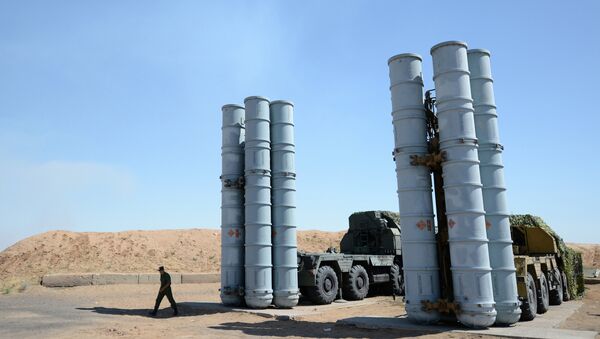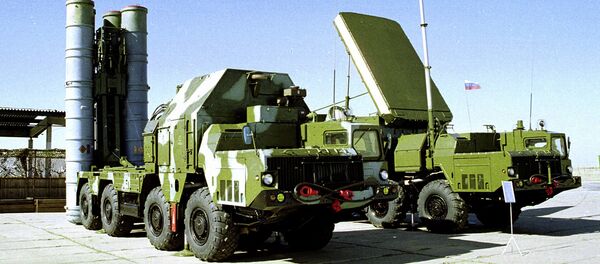WASHINGTON (Sputnik) — Russia is calculating that selling S-300 air defense systems to Iran will increase its clout in the Middle East and will benefit from the economic opportunities a potential Iran nuclear deal will offer, experts told Sputnik.
“Russia is using the window of opportunity created by the framework agreement signed in Lausanne to deepen its relations with Iran, increase its clout in the region, and benefit economically,” Bilyana Lilly, author of “Russian Foreign Policy Toward Missile Defense: Actors, Motivations, and Influence,” told Sputnik on Thursday.
Moscow could benefit from up to $13 billion in profits in the arms trade if UN arms sanctions are lifted as part of an Iran nuclear deal, Lilly noted.
US officials have conceded, however, the S-300 sale is not in violation of any UN Security Council resolutions against Iran.
US allies Israel, Saudi Arabia and the Arab Gulf states — major buyers of US military hardware — are also weary of the S-300 missiles sale to their regional adversary Iran.
Israel, which successfully lobbied to prevent the S-300 sale in 2010, is concerned that the sale would raise the costs of possible airstrikes against Iran’s nuclear facilities.
“It does seem to be rather provocative if the whole point of the P5+1 negotiation with Iran over its nuclear program is intended to deescalate,” Heritage Foundation Defense Programs Senior Research Fellow Dakota Wood told Sputnik.
“Why does Iran need the latest generation of air defense systems? It is just odd and calls into question Iran’s actual intent,” Wood said.
Wood agreed with Lilly that the weapons sale is an opportunity for Russia to earn hard currency as well as increase Moscow’s influence and gain favour with Iran.
Russian officials, including President Vladimir Putin, have said the sale would contribute to stability in the Middle East.
On Thursday, Putin said that in the context of a Saudi Arabia and Arab Gulf country military build-up and operations in Yemen, the S-300 sale would prevent new hostilities from breaking out.
Putin argued that the framework nuclear deal shows Iran is willing to compromise and reach a deal with world powers over its nuclear program, while Israeli concerns are unfounded.
The S-300VM and the more advanced S-400 can shoot down more than a dozen targets simultaneously, including aircraft, cruise missiles and ballistic missiles. The S-300VM is a defensive system with a range of 155 miles.
“Considering its capabilities, the system is likely to present a significant challenge to any air attack from Israel or another state aiming to target any of Iran’s nuclear facilities,” Lilly said.
Lilly added that while the S-300 limits the coercive leverage of the opponents to Iran’s nuclear program, if a nuclear deal is finally implement “there would be no need for a potential attack on Iran’s nuclear facilities and the missile sale would be less contentious.”
Moscow and Tehran agreed on the delivery of five S-300 PMU-1 systems in 2007 for $800 million. In 2010, then-President Dmitry Medvedev put the deal on hold after the UN Security Council introduced an embargo on arms deliveries to Iran over fears Tehran was developing nuclear weapons.
On April 13, Russian President Vladimir Putin signed a decree lifting the ban on the sales of S-300 air defense systems to Iran that overturns the 2010 decree.
On Thursday, Iran’s Defense Ministry said the S-300 deal could be closed by the end of 2015.



